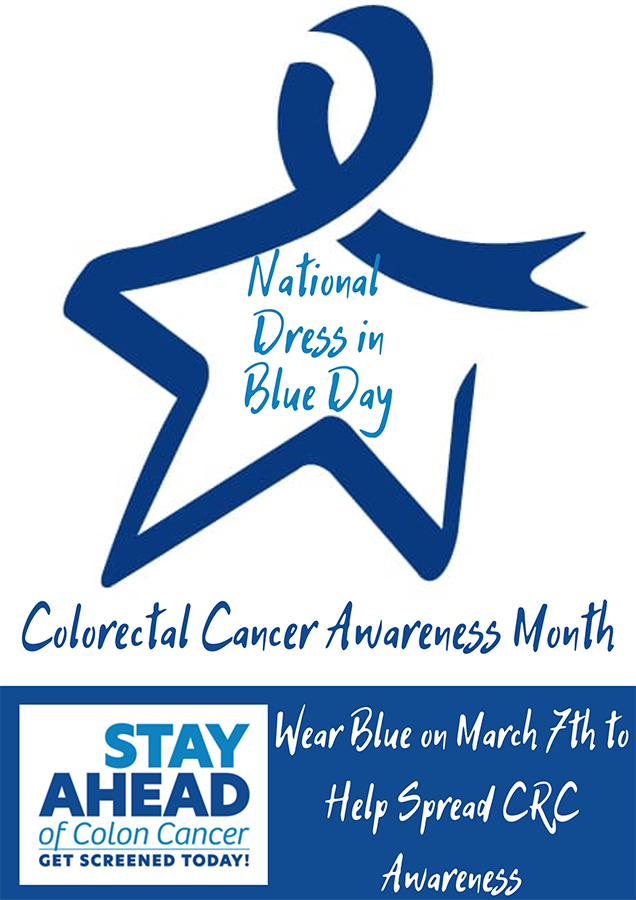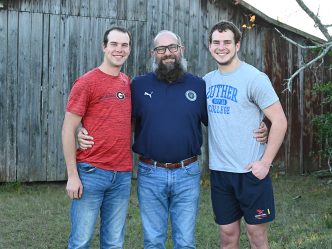For the last five years, researchers in Augusta University’s School of Public Health have been working to develop a program to encourage more people living in southeast and southwest Georgia to get screened for colorectal cancer, more commonly referred to as colon cancer.
According to the Georgia Center for Oncology Research and Education, the average screening rate for eligible patients in Georgia is 70%; however, the rate in southwest Georgia is only 53%, and it drops to 33% in southeast Georgia.
Those are statistics KM Islam, MD, PhD, has been working to improve in collaboration with Georgia Core and Horizons Community Cancer Coalition. Through a $1 million grant from the Centers for Disease Control and Prevention in 2020, part of the CDC’s national ScreenOutCancer initiative, Islam and his partners founded the Georgia Colorectal Cancer Control Program.

“Colorectal cancer here in Georgia is the second-leading cause of cancer-related deaths, just like it is nationally,” said Islam, a professor in the Department of Biostatistics, Data Science, and Epidemiology in SPH. “The rate varies county to county, but one of the primary hurdles for many living in rural areas is their insurance status. Many individuals without health insurance don’t have primary care doctors, so they rely on screening centers, and it can take four to five months to be seen, whether you have insurance or not.”
According to the American Cancer Society, colorectal cancer is the third-leading cause of cancer-related deaths in men and the fourth-leading cause in women. The ACS estimates about 107,320 people in the United States will be diagnosed with colon cancer in 2025, resulting in 52,900 deaths.
Risk factors include age, race, personal history of polyps, family history of colorectal cancer or inflammatory bowel disease, obesity, diabetes, low fiber/high fat diet, sedentary lifestyle, smoking and alcohol intake. Black Americans have the second-highest mortality and incidence rates of colorectal cancer in the U.S. They are 35% more likely to die from colorectal cancer and 15% more likely to develop it than non-Hispanic whites.

While the number of people who die each year from colorectal cancer has steadily decreased in recent years due to increased screenings and changing lifestyles, those numbers are mostly seen in older adults. Islam and other researchers noted that early onset colorectal cancer and deaths in individuals under the age of 50 have been increasing between 1 and 2% per year in recent years. Currently, close to 10% of colon cancer diagnoses are in people under the age of 50, placing an emphasis on the need to start screening sooner.
“It’s an alarming trend. Our goal is to work with groups in rural communities to emphasize screening at the community level rather than at the clinic level because there is a big number of patients who do not come to the clinic at all,” Islam said. “Because so many either do not go to a clinic or do not have access to a primary care physician, many interventions and other activities that are related to the clinics are missing a big chunk of population.”

In the years since the program began, it has been implemented at 20 clinics within the boundaries of three Federally Qualified Health Centers, East Georgia Healthcare Center, Albany-Area Primary Healthcare and Primary Care of Southwest Georgia. This means that since the program was started, more than 12,000 Georgians in southwest and southeast Georgia now have access to this colorectal screening program.
The team has also implemented a monthly colorectal cancer screening TeleECHO program, which can be accessed by providers in Georgia and throughout the country.
“There is a drastic difference in outcome due to early diagnosis,” Islam said. “If we can catch it early on, the survival rate is over 90% compared to 5 to 10% in later stages. It’s very important to start these screenings as soon as possible.”
Friday, March 7, is Dress in Blue Day for Colorectal Cancer Awareness, marking the beginning of Colorectal Cancer Awareness Month.

 Augusta University
Augusta University




